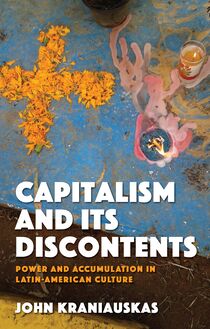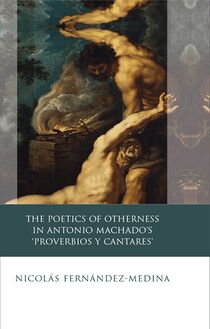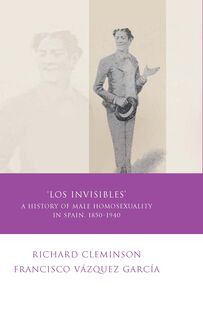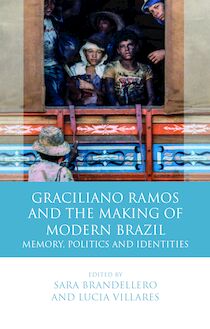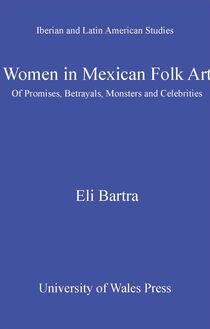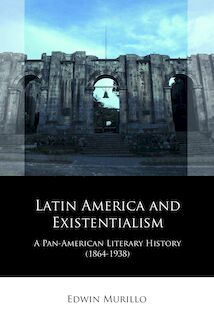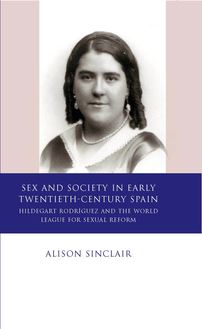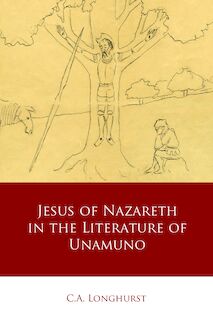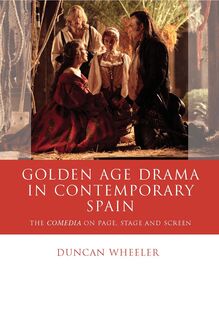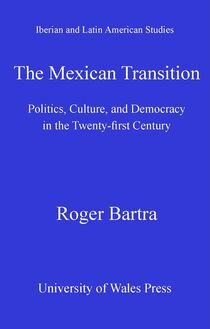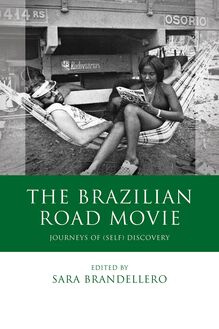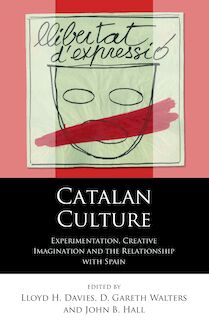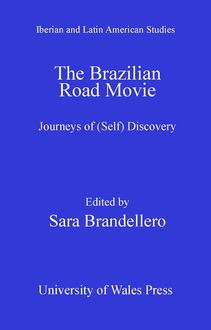The Enlightenment in Iberia and Ibero-America , livre ebook
198
pages
English
Ebooks
2017
Vous pourrez modifier la taille du texte de cet ouvrage
Obtenez un accès à la bibliothèque pour le consulter en ligne En savoir plus
Découvre YouScribe en t'inscrivant gratuitement
Découvre YouScribe en t'inscrivant gratuitement
198
pages
English
Ebooks
2017
Vous pourrez modifier la taille du texte de cet ouvrage
Obtenez un accès à la bibliothèque pour le consulter en ligne En savoir plus
Publié par
Date de parution
23 mars 2017
Nombre de lectures
0
EAN13
9781786830487
Langue
English
This book discusses responses to the challenges faced by two different Iberian imperial systems in their struggle to sustain territorial integrity and economic interests in the face of international competition. During a so-called period of ‘Enlightened Despotism’, absolutist governments in Spain and Portugal sought to harness Enlightenment ideas to their policies of reform. The Iberian Enlightenment, however, did not rely exclusively on government sponsorship – it had existing foundations in sixteenth-century Spanish humanism and subsequent attempts at reform, and educated individuals in major cities frequently operated independently of government. The Enlightenment contributed greatly to the availability of potential political solutions to the urgent matter of political status, in the attempt to transform absolutist governments into constitutional systems and drawing in the process on the structures of medieval foundations, contemporary revolutions or less radical constitutional monarchies, or a combination of sources more closely aligned with Ibero-American realities.
Publié par
Date de parution
23 mars 2017
Nombre de lectures
0
EAN13
9781786830487
Langue
English
IBERIAN AND LATIN AMERICAN STUDIES
The Enlightenment in Iberia and Ibero-America
Series Editors
Professor David George (Swansea University)
Professor Paul Garner (University of Leeds)
Editorial Board
David Frier (University of Leeds) Lisa Shaw (University of Liverpool) Gareth Walters (Swansea University) Rob Stone (University of Birmingham) David Gies (University of Virginia) Catherine Davies (University of London) Richard Cleminson (University of Leeds) Duncan Wheeler (University of Leeds) Jo Labanyi (New York University) Roger Bartra (Universidad Nacional Autónoma de México)
Other titles in the series
Catalan Cartoons: A Cultural and Political History
Rhiannon McGlade
Revolutionaries, Rebels and Robbers: The Golden Age of Banditry in Mexico, Latin America and the Chicano American southwest, 1850-1950
Pascale Baker
Teresa Margolles and the Aesthetics of Death
Julia Banwell
Galicia, A Sentimental Nation
Helena Miguelez-Carballeira
The Brazilian Road Movie
Sara Brandellero
The Spanish Civil War
Anindya Raychaudhuri
The Mexican Transition: Politics, Culture and Democracy in the Twenty-first Century
Roger Bartra
Adolfo Bioy Casares: Borges, Fiction and Art
Karl Posso
IBERIAN AND LATIN AMERICAN STUDIES
The Enlightenment in Iberia and Ibero-America
BRIAN HAMNETT -->
UNIVERSITY OF WALES PRESS 2017
© Brian Hamnett, 2017
All rights reserved. No part of this book may be reproduced in any material form (including photocopying or storing it in any medium by electronic means and whether or not transiently or incidentally to some other use of this publication) without the written permission of the copyright owner. Applications for the copyright owner s written permission to reproduce any part of this publication should be addressed to the University of Wales Press, 10 Columbus Walk, Brigantine Place, Cardiff CF10 4UP.
www.uwp.co.uk
British Library CIP Data
A catalogue record for this book is available from the British Library
ISBN 978-1-78683-046-3
eISBN 978-1-78683-048-7
The right of Brian Hamnett to be identified as author of this work has been asserted in accordance with sections 77 and 79 of the Copyright, Designs and Patents Act 1988.
Cover image: Lorenzo Quiros, The entry into the city of Madrid of King Carlos III at Platerias ornamental street (1760); collection Real Academia de Bellas Artes de San Fernando, Madrid. Prisma Archivo/Alamy.
Contents
------------------------------------------------
Series Editors Foreword
List of Abbreviations
Preface
Introduction
Chapter 1:
The Iberian Enlightenment: Nature and Significance
Chapter 2:
Regalism, Papalism and Reform of the Catholic Church
Chapter 3:
State, Empire and Reform in Traditional Societies
Chapter 4:
Enlightenment and Reform in Portugal and Portuguese America
Chapter 5:
The Spanish American Enlightenment: Reception and Practice
Chapter 6:
The Enlightenment in New Spain
Chapter 7:
Issues and Personalities of the Peruvian Enlightenment
Chapter 8:
History, Political Institutions and the Question of Representation
Chapter 9:
The Counter-Enlightenment
Final Remarks
Notes
Sources and Bibliography
Series Editors Foreword
------------------------------------------------
Over recent decades the traditional languages and literatures model in Spanish departments in universities in the United Kingdom has been superseded by a contextual, interdisciplinary and area studies approach to the study of the culture, history, society and politics of the Hispanic and Lusophone worlds - categories that extend far beyond the confines of the Iberian Peninsula, not only in Latin America but also to Spanish-speaking and Lusophone Africa.
In response to these dynamic trends in research priorities and curriculum development, this series is designed to present both disciplinary and interdisciplinary research within the general field of Iberian and Latin American Studies, particularly studies that explore all aspects of Cultural Production (inter alia literature, film, music, dance, sport) in Spanish, Portuguese, Basque, Catalan, Galician and indigenous languages of Latin America. The series also aims to publish research in the History and Politics of the Hispanic and Lusophone worlds, at the level of both the region and the nation-state, as well as on Cultural Studies that explore the shifting terrains of gender, sexual, racial and postcolonial identities in those same regions.
List of Abbreviations
------------------------------------------------
AGI
Archivo de Indias, Seville
AHAV
Archivo Histórico del Ayuntamiento de Valencia
AHDE
Anuario de Historia del Derecho Español
AHN
Archivo Histórico Nacional, Madrid
AHR
American Historical Review
EHQ
European History Quarterly
HAHR
Hispanic American Historical Review
JLAS
Journal of Latin American Studies
LBR
Luso-Brazilian Review
RI
Revista de Indias
Preface
------------------------------------------------
Enlightenment is not an ideology but a state of mind. The way from pre-enlightenment to a state of enlightenment is through experience: it passes from a condition of not knowing to one of knowledge. The difference is between not understanding what is going on and understanding it. In Wagner s opera, Parsifal, the ignorant, innocent young man, who has just fired an arrow into a flying swan, witnesses the ceremony of the Knights of the Grail without understanding anything. Gürnemanz, the narrator, has tried to tell him the significance of what he witnessed but to no avail. It takes Parsifal two more Acts of the opera (and several more hours) to understand through experience the meaning of these events. Enlightenment, it appears, cannot be told: knowledge is gained through experience and suffering. Symbols and rituals then unravel their meaning. Enlightenment has been revealed as a process of spiritual purification.
We can see from this that Enlightenment has frequently been associated with religion - with awakening and regeneration - and, it should be said, not exclusively associated with Buddhism. In Christian terms, enlightenment may be the working of divine grace. The attribution of Enlightenment primarily to eighteenth-century philosophers and government ministers has caused the original meaning to be practically (though not entirely) lost. This is especially so, when latter-day protagonists of the eighteenth-century Enlightenment associate the term specifically with anti-religion. Few eighteenth-century philosophers did that. In the Iberian and Ibero-American Enlightenment, most ilustrados sought to bind together inherited religion with the new methods of thinking. They argued for reform in Church and State, in law and education, and in the practice of science and medicine. When ilustrados who were members of the clergy argued for reform of religious practice, they were calling for an intensification of belief and not for its abandonment. When imperial monarchy broke down at the beginning of the nineteenth century, the instruments of reform could no longer be kings and their ministers. When constitutional change became necessary for the survival of political society, attention turned to new forms of government and social organisation. Republicanism and federalism were among the offsprings. Most political figures saw the transformation in Christian terms.
An interviewer asked me what I thought still needed to be investigated concerning eighteenth and early nineteenth-century Iberian and Ibero-American history so that we could understand the Independence period more clearly. I answered that principally it should be the Enlightenment. 1 I said that we needed to distinguish between official expressions or appropriations of ideas and non-official and provincial; that we should see whether Enlightenment in Iberia and Ibero-America, or in the Hispanic and Lusitanian worlds, differed; whether the focus on the sciences, mathematics and medicine contributed to a change in mentalities and practices; and, finally, whether any linkage existed between Enlightenment and Revolution, and between eighteenth-century reformers and early nineteenth-century Liberal constitutionalists.
That affirmation arose from earlier participation in the University of Warwick s Institute of Advanced Study Colloquium Mexico and the Enlightenment held in Venice on 20 March 2008 and presided over by Dr Rebecca Earle and Dr Andrew Laird. The aim of the Colloquium was to explore the intellectual, cultural and political climate of late eighteenth-century Mexico - principally in relation to conceptions of the European Enlightenment . My topic was The Mexican Enlightenment Between Church and State, 1750−1790 . This was the first time I had spoken in public on the subject of the Enlightenment, which, I confess, had never been uppermost in my mind. Even so, many of the issues had been broached in two courses in my final year as an undergraduate at Cambridge University in 1963−4. These were Betty Behrens course on Absolutism and Enlightenment, and, as my special subject, Church and State in France, 1789−1814 , taught by C. W. Crawley. I suppose the deepest roots of this present book lie there. We studied this latter course largely from French printed primary sources and examined the various French historical schools. We delved into the historical conflicts over Church-State relations, de-Christianisation, popular opposition to the Revolution in the Vendée, the response of the Papacy and Catholic Church to revolutionary movements, and the development of Counter-Revolution. It was through John Street s innovative lectures on Spanish Enlightened Absolutism, which stood out against the general absence of interest in Cambridge at that time in eighteenth-century Iberian and Ibero-American history, that I moved the focus of my interest from France to the Hispanic world. Accordingly, I began doctoral research in the Archive of the Indies in
